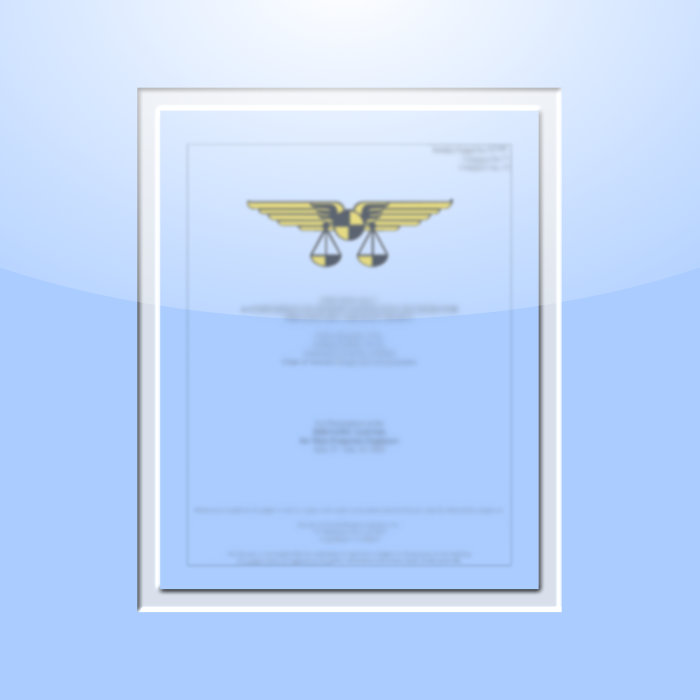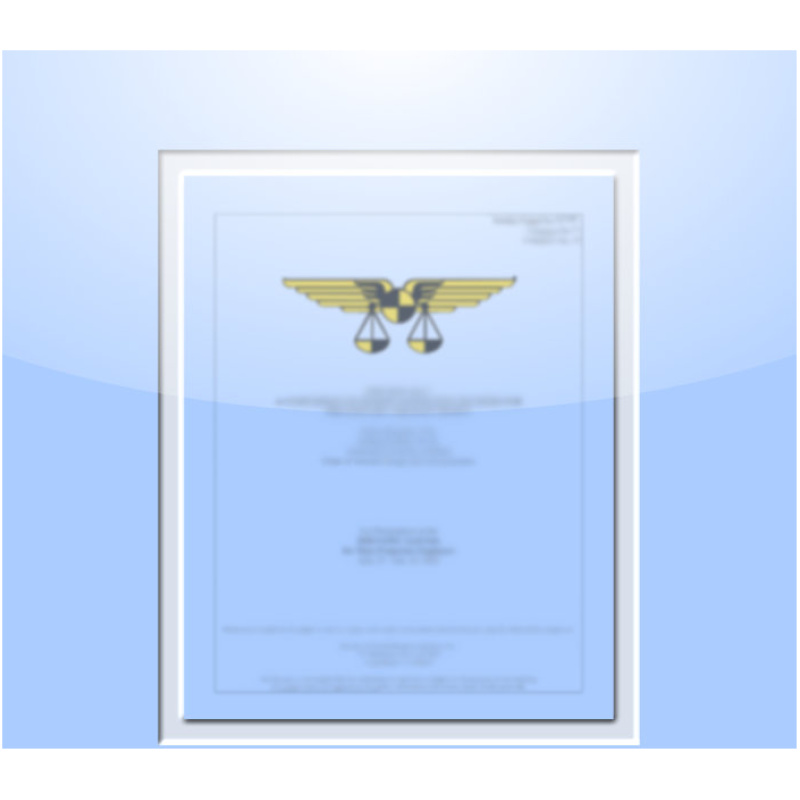
1269. Deregulation – A Broad View
$20.00
SAWE Members get a $200 store credit each year.*
*Store credit coupon available at checkout, click the button in your shopping cart to apply the coupon.
Not applicable to SAWE textbooks and current conference technical papers.
Paper
Abstract
It should first be noted that this is not a technical paper, nor is it original. It concerns a subject with which we all have some concern, particularly those of us from the United States, that of airline deregulation. At the same time the matter is diverse, complex, and couched in legalities to the point that real understanding by the layman is questionable. There is also the concern on the part of the airlines that someone without an expertise will misrepresent his company’s official position. In fact it was suggested that one best go to the congressional record if you are concerned with that aspect of the subject.
In early 1978 United Airlines’ Senior Vice President of Government Affairs, Mr. Monte Lazarus, made a presentation at a Management Conference in San Francisco that I felt approached the subject in a broader sense. Since I found it to be an interesting presentation, and with Mr. Lazarus’ agreement, I would like to share it with you.
Mr. Lazarus sets the scene as 1984, with its Orwellian overtones, and looks back on what has transpired from now to that time period. As such, he titled his presentation ‘Yesterday’. You will note some ‘tongue in cheek’ aspects but I am assured that the general theme is serious.
**********************************
Thirty-five years ago George Orwell wrote his famous novel ‘1984’. In it, he predicted that big brother would dominate the world by this year. He said that this would be a desperate time in which men would have totally lost their freedom. Orwell said we would follow slogans and give up independent thinking.
It hasn’t happened quite that way. The political and economic world hasn’t changed that much. We’re still swamped by our problems. And we’re still trying to find solutions-not through slogans, but through better answers. In the 80’s, energy problems still haunt us, and the 98th U.S. Congress is still tied up trying to get an energy package to the next President, whoever she may be. OPEC price increases have kicked motor gasoline to $1.25 a gallon and jet fuel is selling at 70 cents a gallon.
Western Europe is struggling with labor problems, the Japanese are dumping products worldwide, the Mideast is still a riddle without an answer. New York City just borrowed $8 billion from Venezuela to meet its welfare payments.
Government regulation is still increasing. The Federal Register had 2,411 pages when first published in 1936. By 1975, it had 60,221 pages, and by 1983, it had grown to 124,673 pages. In 1984 there are more than 120 regulatory agencies and over 200,000 government workers who interpret and implement government regulations. Our annual budget is up to $750 billion. The Social Security System is on the brink of bankruptcy once again.
But, while other problems are pretty much the same as they were 10 or 15 years ago, in the world of U.S. air transportation, there have been some profound changes. Let’s take a minute to review them:
– Beginning with the deregulation of cargo in 1977, some government controls over routes and rates have been removed. The Airline Regulatory Reform Act of 1978 has been in effect now almost five full years. It’s not working too badly, as we have learned.
But the airline regulatory reform act did not completely free United from the heavy hand of Uncle Sam. More than ever, in 1984 the federal government is our partner in the running of our business. Here are just a few examples:
– Carriers must ask for CAB permission much less often, but must te11 the CAB much more about their activities. Each night United’s computers summarize every transaction of the previous day-each ticket sold, each passenger carried, each flight operated, each expense incurred. By data link, this information is transmitted to computers of the CAB’S Bureau of Information in its building in Langley, Virginia. Instead of cutting back, CAB’S staff has actually grown from 700 in 1978 to over 3,000 in January 1984. Most of CAB’S people are now located in the Bureau of Information and the Bureau of Enforcement, gathering more and more data and acting as watchdogs over the system.
– CAB cases are different. Domestic route cases no longer exist. Enforcement cases take up about a third of the docket and international matters take up another third. Such things as smoking violations, lost baggage and claims take a lot of time and effort. Other cases involve the lawfulness of rates and fares, on questions of unjust discrimination, undue prejudice and preference and predatory activity.
– Agencies we knew in 1978 have become larger and more powerful. OSHA received a new congressional mandate in 1980 and is enforcing rigid standards for all employee groups-including executives. Recently, after discovering that scotch tint on our Executive Office windows caused cancer in a Canadian rat, OSHA ordered the window covering removed at United’s headquarters.
– FAA, EPA, FTC, Food and Drug Administration, Internal Revenue and the Departments of Justice, Transportation, Energy and Labor have alt become more powerful, and more concerned with air transportation.
– FAA’s noise rules were amended again in 1982 to make the standards even tougher for new aircraft. Several important agencies were created in the early 80’s, and have tremendous influence on us:
– First, there are our friends over at Triple A-B-the Airport Access Allocation Bureau in DOT, which allocates access at the 25 most critical airports. Triple A-B has authority to assign general aviation activity away from air carrier airports, and to prescribe the number of airline movements by airport, by airline, by hour. Our Vice President of Schedule Planning returned to his ancestral home in Scotland to manage the faintly haggis business after two years of dealing with Triple A-B.
– Next is the PAA–the Petroleum Allocation Agency in the Department of Energy which allocates liquid petroleum products. Scarcity of petroleum, slow development of alternative energy sources and the rising cost of petroleum products, has prompted a quota system among competing modes to allocate liquid petroleum for transportation.
– A Cabinet level Consumer Affairs Department was established in 1980 by the Consumer Welfare Act. Consumer affairs activities of a11 other federal agencies-including CAB-were transferred. The new department participates in all CAB cases.
– Finally, the new Federal Employment Agency in the Labor Department is making life interesting for United’s personnel people. The agency mandates employment quotas to each American firm in ratio to its gross sales. Quotas specify employee count by age, sex, race, creed, color, national origin, educational level, and job title for each location of each firm. After dealing with the new Federal Employment Agency, our Vice President of Personnel went fishing. He never returned.


